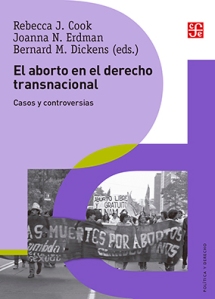Congratulations and thanks to Dr. Elena Caruso, whose article on “The Hyper-Regulation of Abortion Care in Italy” was recently published in the International Journal of Gynecology and Obstetrics‘ “Ethical and Legal Issues in Reproductive Health” section, edited by Professors Rebecca J. Cook, Bernard M. Dickens and Charles G. Ngwena. The author, Elena Caruso, is an Italian legal scholar who completed a doctorate in Law at Kent University and who now holds an AMTD Waterloo Global Talent Postdoctoral Fellowship at the University of Waterloo in Ontario, Canada. We are pleased to circulate the following abstract of this article, which is now fully available online in both English and Italian:
The Hyper-Regulation of Abortion Care in Italy, by Elena Caruso in International Journal of Gynecology and Obstetrics 163.3 (December 2023):1036-1042. PDF at Wiley Online. Italian translation.
ABSTRACT: This paper argues that the current abortion regulation by Law 194/1978 is an inadequate basis for the provision of good quality abortion care and must be reformed. First, the paper explains why Law 194/1978 creates a hyper-regulatory regime that is inconsistent with the best clinical evidence and practices in the field as well as relevant international human rights law, as outlined in the World Health Organization’s (WHO) 2022 Abortion Care Guideline. Second, it highlights gaps between what the law says and what happens in practice, pointing out how the everyday life of Law 194/1978, especially in the practices of gynecologists, is far removed from international standards of quality abortion care and has yet to comply with international human rights law. Third, it sets out some alternative routes to abortion access “outside” Law 194/1978. Finally, it concludes with some suggestions for a change in the practice of gynecology and a call for the reform of Law 194/1978, in favor of a bodily autonomy model of regulation grounded on decriminalization, demedicalization, dehospitalization, and self-management to ensure compliance with the WHO standards and international human rights law.
The entire paper is now freely available in English and Italian: English article PDF. Italian translation.
RELEVANT RESOURCES:
Law 194 of 1978: an English translation of this Italian law is online here.
The WHO Abortion Care Guideline: Law and Policy–Past, Present and Future,” by Joanna N. Erdman, in International Journal of Gynecology and Obstetrics162.3 (Sept 2023): 1119–1124. PDF at Wiley Online.
Abortion Law Decisions webpages, now updated in English and in Spanish.
Ethical and Legal Issues in Reproductive Health – more than 110 other concise articles are online here.
________________________________________________________________________________________
Contributed by: The International Reproductive and Sexual Health Law Program, reprohealth*law at utoronto.ca. See Program website for our Publications, Research resources, and Reprohealthlaw Commentaries Series. TO JOIN THE REPROHEALTHLAW BLOG: enter your email address in the upper right corner of this blog, then check your email to confirm the subscription.



 Posted by reprohealthlaw
Posted by reprohealthlaw 



